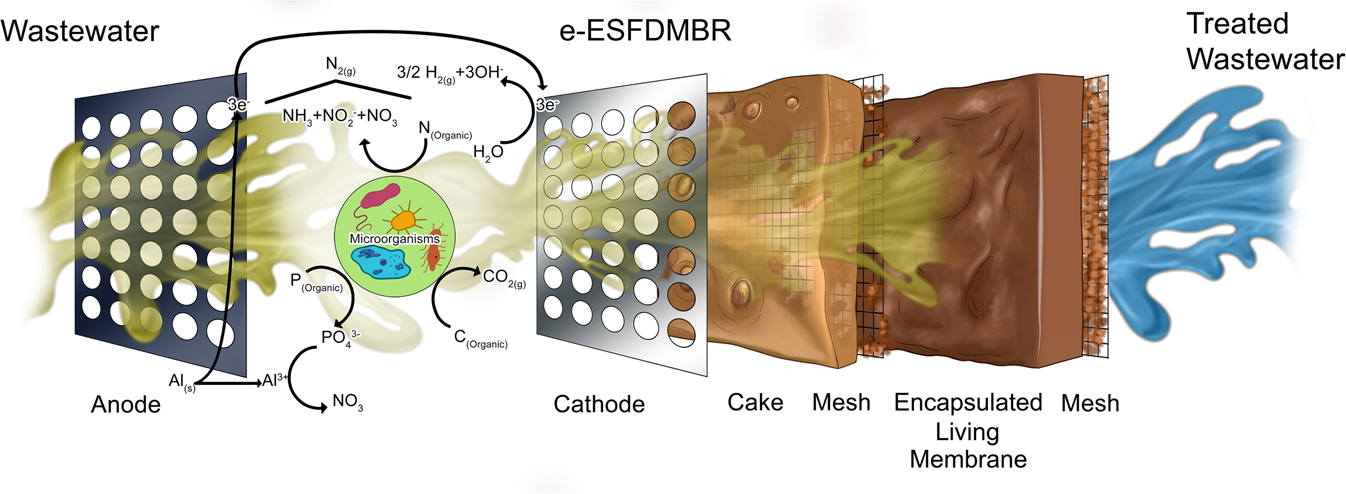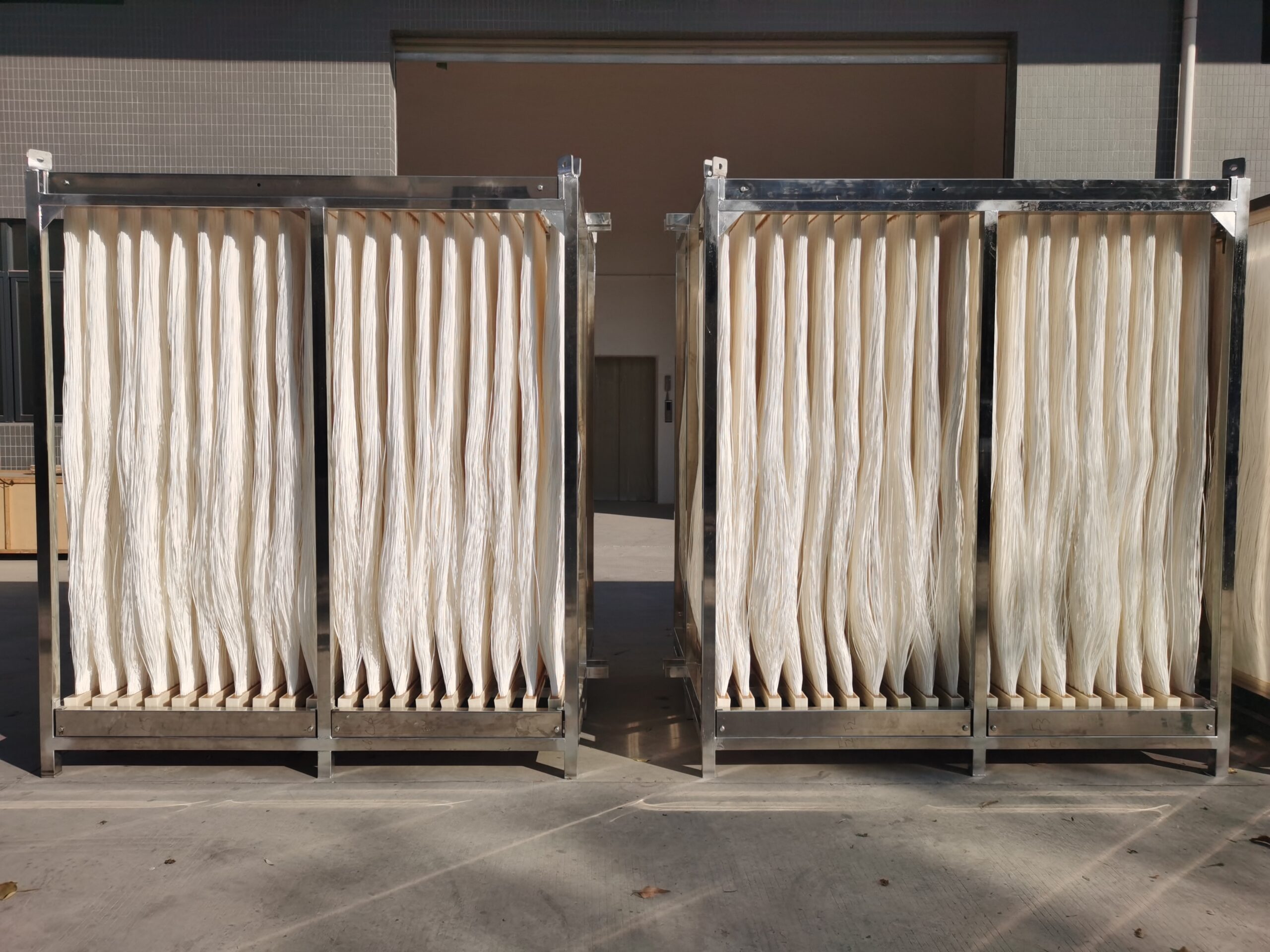The Benefits of Membrane Layer Bioreactors in Sustainable Wastewater Management
Membrane layer bioreactors (MBRs) represent a pivotal improvement in lasting wastewater management, efficiently merging organic therapy with sophisticated membrane filtration innovation. This integration not just boosts effluent high quality by efficiently eliminating contaminants but also opens up avenues for water reuse in numerous applications, therefore attending to journalism need for source conservation. The portable style of MBRs adds to significant reductions in ecological effect and functional prices. As the demand for lasting options increases, discovering the diverse benefits of MBRs might disclose unforeseen ramifications for the future of wastewater treatment systems.
Review of Membrane Bioreactors
Membrane layer bioreactors (MBRs) stand for a considerable improvement in wastewater therapy modern technology, incorporating organic destruction with membrane purification to enhance the effectiveness of the therapy process. This innovative system integrates the benefits of conventional triggered sludge processes with membrane layer innovation, permitting for enhanced solid-liquid splitting up. MBRs utilize semi-permeable membrane layers to separate treated water from biomass, resulting in premium effluent that can be recycled or safely released right into the setting.
The functional style of MBRs usually includes a bioreactor where bacteria break down raw material, adhered to by a membrane device that filterings system the blended alcohol. This arrangement not only reduces the impact of the treatment center however also enables higher biomass focus and lowered hydraulic retention times. Furthermore, MBRs can dealing with a larger variety of pollutants, consisting of nutrients and microorganisms, making them appropriate for numerous applications, from local wastewater therapy to commercial effluent handling.
The assimilation of MBRs into wastewater monitoring systems is a sign of an expanding trend towards lasting and effective methods in environmental engineering. Their ability to produce top quality effluent while lessening space requirements settings MBR technology as a key gamer in modern-day wastewater therapy services.
Boosted Effluent Top Quality

The membrane filtration procedure serves as a physical barrier, allowing the retention of microbes and particulate matter, which contributes to a clearer and cleaner effluent (Membrane Bioreactor). Additionally, MBRs operate at greater biomass concentrations than conventional triggered sludge systems, promoting much more reliable biodegradation of contaminants. This brings about a decrease in biochemical oxygen need (BODY) and overall suspended solids (TSS) degrees in the last effluent
Furthermore, MBRs show excellent performance in treating challenging wastewater make-ups, such as industrial effluents and wastewater with high nutrient loads. Therefore, the effluent produced is often of better, permitting even more versatile disposal options and lowered ecological impact. Inevitably, the improved effluent high quality accomplished via MBR technology highlights its critical role ahead of time sustainable wastewater monitoring practices.
Water Reuse Opportunities
The premium effluent created by membrane layer bioreactors (MBRs) opens considerable opportunities for water reuse in numerous applications. MBRs successfully eliminate pollutants, including virus, suspended solids, and raw material, causing cured water that fulfills or goes beyond regulative requirements for reuse. This quality enables for the implementation of water reusing campaigns throughout diverse markets.
One noticeable application remains in agriculture, where dealt with wastewater can be made use of for irrigation, promoting sustainable farming practices while preserving freshwater sources. Furthermore, MBR-treated effluent can be used for commercial procedures such as air conditioning, cleansing, and as a process water resource, considerably reducing the need for potable water in these operations.
In city atmospheres, MBRs facilitate making use of recovered water for landscape irrigation, toilet flushing, and other non-potable uses, contributing to the general resilience of supply of water systems. The combination of MBR technology in decentralized systems aids in managing local water demands, especially in water-scarce areas.
Reduced Ecological Impact
Exactly how can the fostering of membrane bioreactors (MBRs) add to a reduced ecological effect in wastewater administration? MBRs dramatically enhance the treatment effectiveness of wastewater while decreasing eco-friendly disturbances. By incorporating biological treatment processes with membrane layer filtering, MBRs effectively eliminate a vast array of contaminants, consisting of organic issue, nutrients, and pathogens. This advanced filtration results in higher-quality effluent, which is vital for safeguarding marine environments and reducing the problem on all-natural water bodies.
Moreover, MBRs run at reduced informative post hydraulic retention times compared to conventional systems, causing smaller sized treatment plant footprints. This small style decreases land use, thus preserving natural habitats and biodiversity. The process also generates less sludge than standard techniques, mitigating disposal challenges and reducing greenhouse gas emissions linked with sludge management.
Furthermore, MBRs facilitate the recovery of important resources, such as water and nutrients, adding to a circular economic situation. By making it possible for water reuse for watering or industrial processes, MBRs help relieve freshwater shortage, therefore promoting lasting water use techniques. Eventually, the fostering of MBR innovation stands for a considerable stride towards minimizing the ecological effect of wastewater monitoring systems.
Financial Advantages of MBRs

In addition, MBRs promote the manufacturing of premium effluent, which can be reused for various applications, such as agricultural watering and commercial procedures - Membrane Bioreactor. This reuse capacity can considerably decrease water procurement prices, offering a monetary motivation for industries dealing with strict water regulations
The small layout of MBR systems likewise results in lowered land requirements, which is specifically beneficial in city locations where realty is pricey. By minimizing space, towns and industries can save on land purchase and upkeep expenditures.
Moreover, MBRs frequently need much less regular upkeep and have a longer life-span than traditional systems, further adding to set go to my blog you back financial savings. In recap, the financial benefits of MBRs-- ranging from lowered functional costs to land financial savings and effluent reuse-- make them a compelling selection for sustainable wastewater management, supplying both lasting and prompt economic advantages.
Conclusion
In addition, MBRs contribute to lowered ecological impacts via compact designs and reduced sludge generation. Economic advantages additionally enhance their stability, making MBRs a promising option for addressing the obstacles of wastewater therapy and advertising sustainable resource monitoring.
Membrane bioreactors (MBRs) represent an essential improvement in lasting wastewater administration, effectively merging organic therapy with innovative membrane layer purification innovation.Membrane bioreactors (MBRs) stand for a considerable innovation in wastewater treatment modern technology, incorporating organic degradation with membrane filtering to boost the performance of the treatment process.Attaining boosted effluent quality is one of the most considerable More hints advantages of making use of membrane bioreactors (MBRs) in wastewater treatment.Additionally, MBRs show outstanding performance in treating difficult wastewater compositions, such as industrial effluents and wastewater with high nutrient tons.Incorporating membrane bioreactors (MBRs) into wastewater management not just lowers ecological effect but additionally presents significant economic benefits.